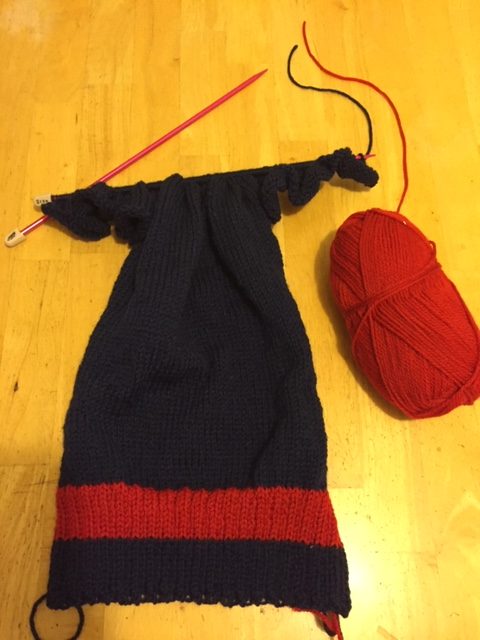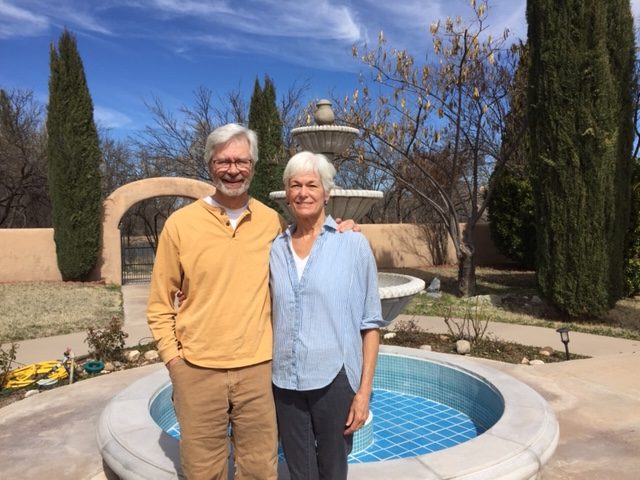by Jody Reis Johnson on February 28, 2020

A knitting project. Do you see transitions from color to color in your life?
I was astonished! Could it really be that simple? A veteran knitter, I knew several other methods for joining yarn into a project, including knitting with both threads for awhile and even splicing the threads by sewing one into the other — a tedious job. Never in all my years of experience had I come across this easiest and perhaps most obvious way.
This image has been weaving itself into my prayers, perhaps because it has something to tell me about dealing with change. As with knitting, I tend to over-complicate change, making it harder than it needs to be. I sputter, hesitate, and dig in my heels. When I reflect on what the real obstacles to change are, I usually find two things: regrets about the past and fears about the future.
Contrast that with Jesus’s first disciples who, when they heard His call to follow, “immediately left their nets and followed Him” (see Mt 4:20). No hesitation. No looking back. It seems they just dropped the old yarn and picked up the new. How was this possible? I can only surmise that, in the presence of the Holy One, the call was so compelling and their trust so complete that they could surrender everything at once. Perhaps the first thing to do, when faced with change, is to place ourselves in God’s presence through prayer.
As I write this, Bryce and I are wintering in the desert. This seems to be our new pattern in these transition years of retirement, somewhere between middle and old age. The desert itself is a powerful image of transition in the Judeo-Christian faith. Since the time of the ancient Hebrews, it has been a mysterious no-place whose emptiness and silence invite us into what lies between past and future, between here and there: the present moment, where God meets us and transforms us. Contemplative or desert wisdom teaches, moreover, that both past and future are touched by this present-moment encounter with God’s healing power; that is part of the mystery of God. We can trust that everything — past misgivings, future missteps or calamities — is held in the hand of our loving Father.
Yet the present moment does not occur in some mysterious, far-off place, but in the particular circumstances of our own lives. Francis de Sales, a down-to-earth contemplative, teaches that we move toward holiness by embracing the joys and challenges right where we are — “the sauce we are in,” as Francis would say. Change is certainly a slippery sauce. He would be reluctant to wave away our human regrets and worries with a sweeping counsel to simply trust and let go. Rather, I imagine St. Francis might say something like this: “If you have amends to make; make them; if grief lingers, grieve; if there are plans to be made, start planning. Then, just drop the old thread and pick up the new, letting God help you weave in the ends later.”

Jody and Bryce in the desert